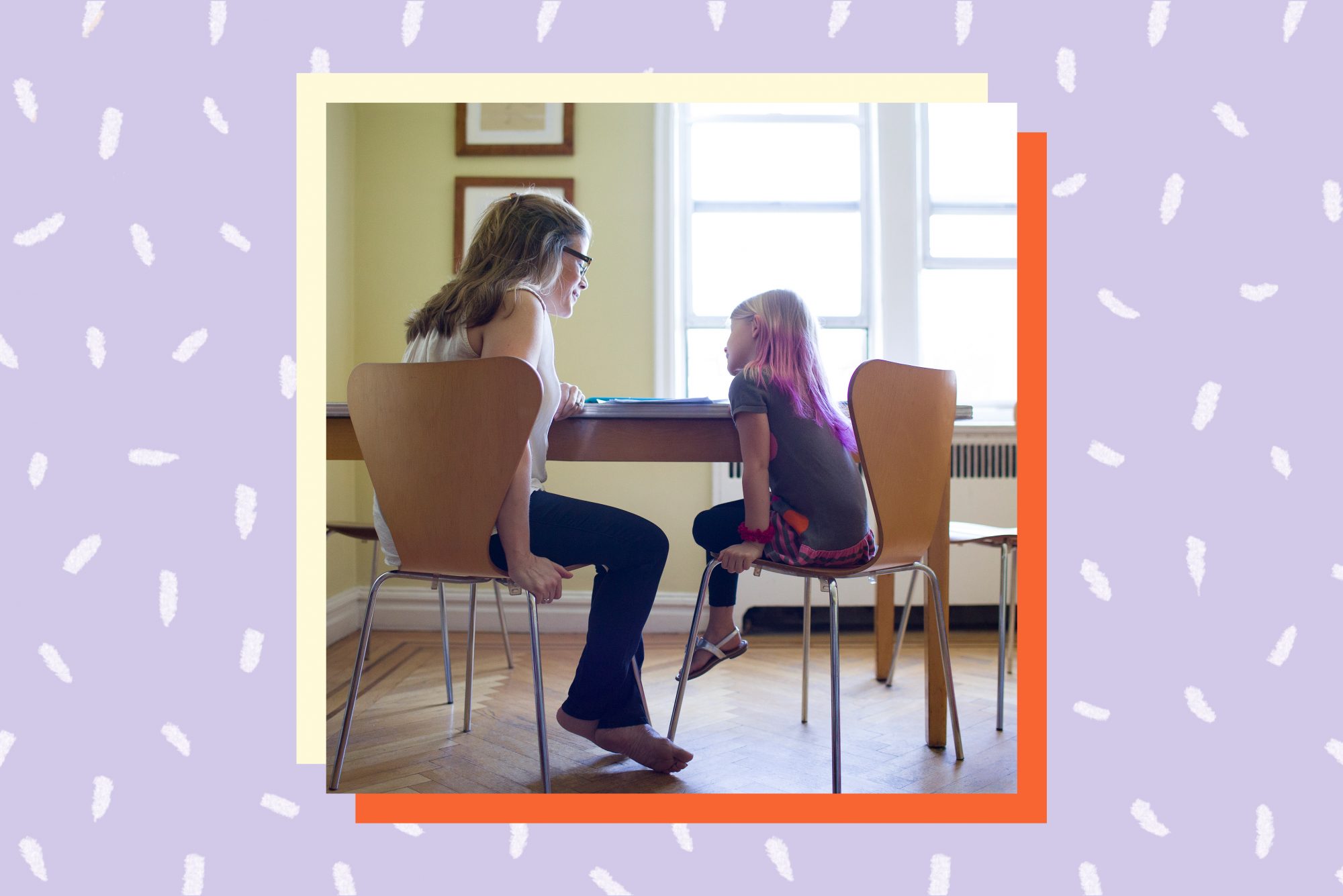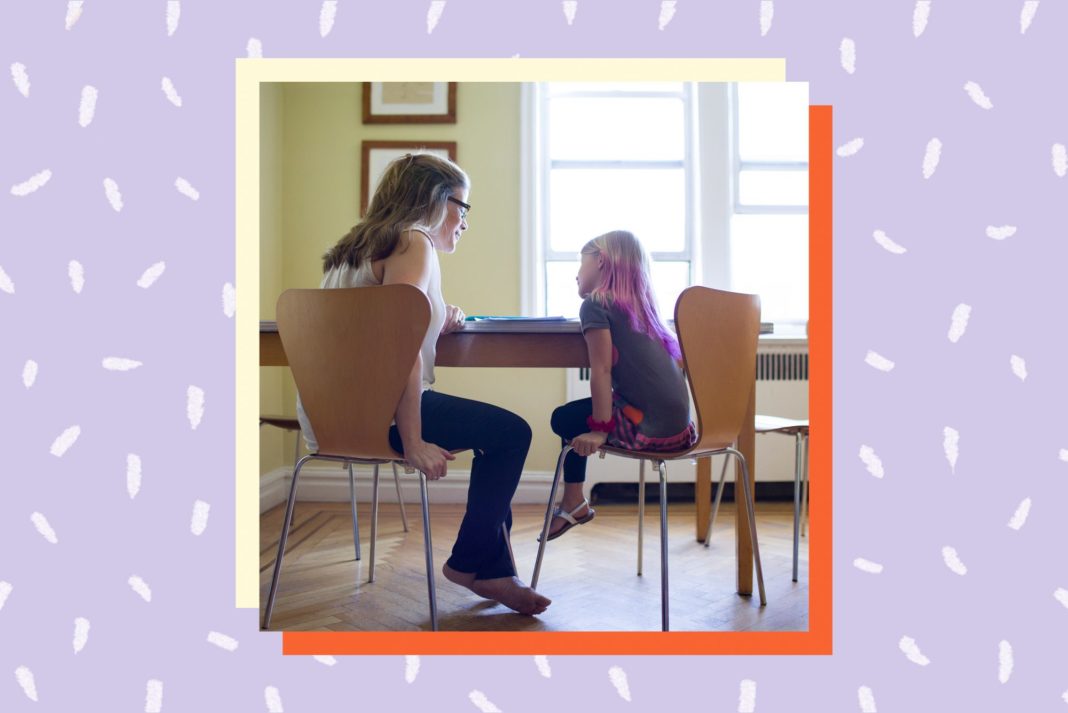
"You have a clitoris there, Kayla, that probably feels good to touch the same way Keith's penis feels when he touches it. But have you ever noticed that older kids and grownups don't touch their private parts in public?" Last month, these two sentences from an Amaze Jr. cartoon turned the elementary school world upside down in a sex-ed controversy. At the center of it was me, Justine Ang Fonte, M.Ed, MPH. While I've taught comprehensive, evidence-based sexuality education for 11 years, I've never encountered such pointed unrest against sex education until now.
And as a pediatrician and parent, I, Hina Talib, M.D., have directly witnessed the consequences of missed opportunities for sex health education and reproductive health counseling that children and teens deserve but have a hard time accessing—especially this year due to the COVID-19 pandemic which caused disruptions in both classroom health education and well-child clinic visits. As schools reopen, these conversations are increasingly important and we are here to help you start them with your kids.
Why Sex Education Matters
Sex education for our youngest children is centered on body agency and safety. For teens it is an essential right in addition to being an important tool against intimate partner violence and child abuse. Since when were those rights made political?
Decades of research on comprehensive sex education that starts in elementary school and continues through high school show it prevents intimate partner violence and child abuse, improves social-emotional learning and media literacy, and fosters healthy relationships, sexuality, and identity development. As parents, pediatricians, and educators, it's our job to make sure young people have the knowledge and confidence needed to make healthy decisions. We need to be in alignment with these core values if we are going to keep our children safe.
This is hard to do because sexuality topics are still taboo in our society. The stigma impacts our access to education and care. The anxiety makes us ill-equipped to talk about it. The misinformation is pervasive in media including mainstream pornography. Some parents fear that talking about sex leads to sex, but this is simply not the case. These barriers limit identity formation, prevent equity, and threaten safety. Our children want this information, yet most are denied it from their schools, parents, and even their pediatricians. Unfortunately, many children are introduced to sex and sexuality in the context of pregnancy prevention and sexual violence. This is neither comprehensive nor healthy.
Comprehensively parenting on sexuality topics from toddler to the teen years is necessary for our children's well-being. But despite widespread support for teaching sex education in schools, including from the American Academy of Pediatrics, The United Nations, and the Society of Adolescent Health and Medicine, only 30 states and the District of Columbia mandate sex education and only 18 states require it to be medically accurate (yes, you read that correctly).
Comprehensive teaching on sexuality topics means talking about it often, including providing factual information about how their body works, promoting bodily autonomy, affirming the spectrum of identities, and modeling consensual behaviors at home. The National Sex Ed Standards K-12 is a helpful guide when questions arise about what content is age-appropriate.
For centuries, sexuality has been socially stigmatized and that makes teaching and learning it hard. Today, sex education in schools is often remedial and focused on unlearning the societal stigmas students have adopted or been socialized to believe years before they walked into health class. Even in health care, more needs to be done, especially to protect our LGBTQ youth. Media creates consciousness and it's modeling to our children what to believe about their bodies: others decide what happens to it, it needs to look a certain way to be attractive, it only behaves in the context of pressure and power based on gender, and that its worth is determined by how aligned it is to the majority. The problem is not just media, messaging, and the lack of sex education, but the lack of accurate and socially-just sex education.
How Parents Can Promote Sex Education
Here are our top sex ed tips for parents:
The Bottom Line
To prepare the young people in your life for the world, these topics need to be addressed at home early on and then reinforced in schools, doctor's appointments, and social spaces. Yes, it may be uncomfortable. Yes, it may even prompt a "controversy." Remember, parenting is not merely about preventing risk, but also equipping kids with tools to be happy, healthy, and compassionate human beings. That's exactly what sex education does.
Justine Ang Fonte, M.Ed, MPH is an intersectional health educator, speaker, ghostwriter, and consultant working in New York.
Hina Talib, M.D., is a pediatrician and adolescent medicine specialist, social media teen health advocate, and teen news, media and parenting consultant in New York.
































